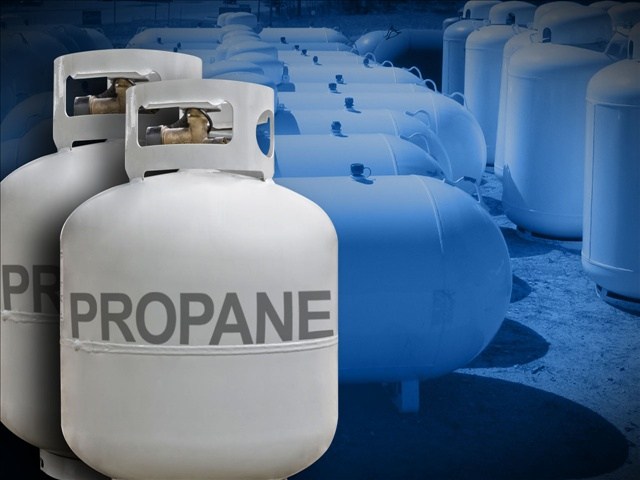As the demand for cleaner burning and more sustainable fuels increases, propane continues to grow in popularity for both residential and commercial applications.
What is Propane?
Propane is a three-carbon alkane with the molecular formula C3H8. It is a by-product of natural gas processing and petroleum refining. Propane is colorless and odorless in its pure form, but an odorant is added before distribution to help detect any leaks. This odorant gives propane its traditional sulfur or rotten egg smell.
Propane is stored and transported as a liquid under moderate pressure. At normal room temperature and atmospheric pressure, propane is a gas. It has a higher energy density than natural gas which makes it easier to store and transport as a liquid. Propane vaporizes quickly when released from its pressurized container, allowing it to be burned efficiently for heating and cooking purposes.
Residential Uses of Propane
Millions of American homes rely on propane as their primary energy source for heating, water heating, cooking, and backup generators. Propane heaters are very common as they provide safe, reliable warmth without producing harmful emissions. Propane furnaces, water heaters, and stoves are also popular residential appliances.
Subheading: Home Heating
Propane furnaces and heaters have become the go-to source for home heating across rural areas without access to natural gas pipelines. Propane burns cleanly and emits much lower carbon dioxide levels than heating oil or kerosene. Modern high-efficiency propane furnaces can reportedly achieve annual fuel utilization efficiencies over 95%.
Subheading: Cooking and Grilling
Propane gas grills and stoves are beloved for their responsiveness and precision cooking capabilities. The blue flame of propane creates an ideal heat source for grilling meats and vegetables. Indoor propane stoves are also widely used as their burners heat and cool down quickly to adjust flame levels. Many country homes and cabins still rely on propane stoves for cooking meals.
Subheading: Backup Power Generation
During power outages, propane generators provide emergency backup power to keep essential appliances running. Propane generators are quieter than diesel and gas alternatives. Their fuel tanks can power homes for days until power is restored. More homeowners are installing automatic transfer switches that detect power failures and switch household circuits to generator power.
Commercial and Industrial Uses
Propane powers operations across many commercial and industrial sectors as well. From forklifts in warehouses to agricultural machinery in the field, propane fuels hard work behind the scenes.
Subheading: Agriculture Industry
Farmers depend on propane to fuel irrigation systems, grain dryers, cold storage, transport refrigeration, and more. Tractors, combines and other agriculture equipment are often propane-powered for their lower emissions and fuel efficiency. Propane reduces reliance on diesel and helps meet clean air standards.
Subheading: Construction Industry
Buildings sites use propane generators, heaters, forklifts and welders on a daily basis. Propane equipment handles demanding job sites without producing noxious fumes. They start easily in extreme temperatures and work quietly around noise-sensitive areas.
Subheading: Transportation Sector
Transportation fleets are increasingly adopting propane autogas as an affordable, domestic alternative fuel. School buses, municipality vehicles, taxi/limos and local delivery trucks can all benefit from the lower operating costs and reduced emissions of propane power. Auto OEMs continue expanding propane-compatible vehicle options as well.
The Environmental Benefits of Propane
Being a byproduct of oil refining and natural gas extraction, propane production helps maximize value from these existing resource streams. Propane appliances also emit far fewer harmful emissions than oil, kerosene, coal or biomass energy sources. When burned, propane releases less carbon monoxide, nitrogen oxides, and particulate matter per unit of energy generated. It produces negligible amounts of sulfur dioxide and ash as well. Propane supports environmental stewardship through its clean combustion qualities and efficiency. As renewable resources are further developed, propane will continue assisting the transition to lower carbon energy solutions nationwide.
In summary, Propane plays an invaluable role in powering homes, transportation and industries across America. As a domestically-produced fuel, propane bolsters energy security while reducing emissions through its clean burning properties. Advanced technologies will only enhance propane’s versatility and environmental performance into the future. With its widespread infrastructure already in place, propane remains an essential resource for affordable, reliable energy nationwide.
Note:
1. Source: Coherent Market Insights, Public sources, Desk research
2. We have leveraged AI tools to mine information and compile it




